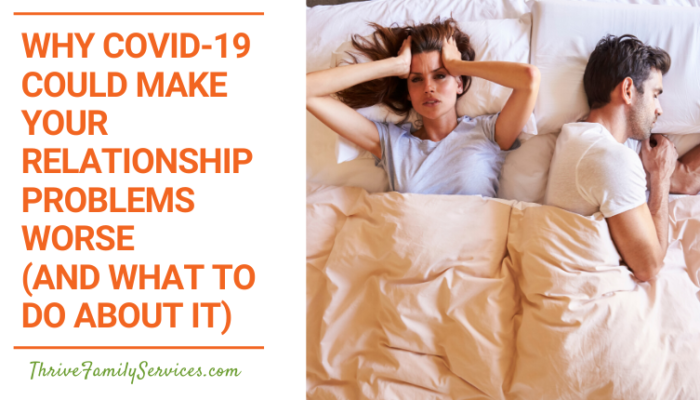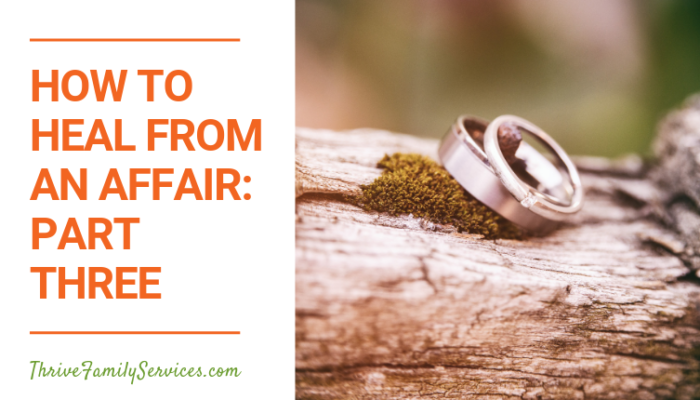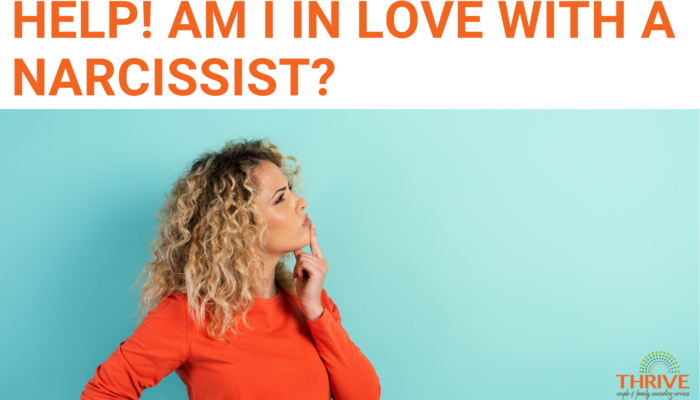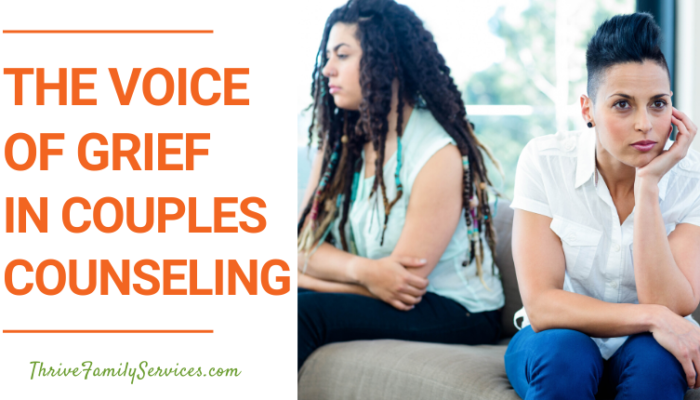COVID-19, or Coronavirus, has led to a global pandemic that most people would not have been able to anticipate happening. Due to the quick spread, the many unknowns, and the lack of predictability, people all over the world are experiencing higher levels of stress, anxiety, worries, losses, and negative impacts.
All of us practicing social distancing are feeling the impacts emotionally of this most unnatural state of being for us social mammals.
Because of this, even if your physical well-being has not been impacted by COVID-19, there is a good chance that your life has been impacted by the virus in some way or another.
People’s livelihoods, work situations, social lives, stress relievers, or mental health statuses have all been impacted. In addition, families and couples have been staying at home – or even working from home – as a part of social distancing practices. Or, you and your partner could be living separately for an indefinite amount of time because of logistical or health-related circumstances.
Whether you and your partner have not been able to leave the house together or you and your partner have not been able to see each other during this time, there is a good chance that your relationship is experiencing a dynamic that it has not had to experience before. Like with any new environment, there is an adjustment period that is needed to “work out the kinks” before a new rhythm can be created. However, this particular new environment that comes from the wake of COVID-19 is likely to come with a multitude of new, intense stressors ranging from health scares to financial crises.
So Why Is COVID-19 Making My Relationship Worse?
If you are noticing an increase in disconnection in your relationship after the spread of COVID-19, you are not alone. There are different reasons why your relationship might be impacted negatively depending on your specific circumstances. However, there is one universal truth about relationships that could be the key to understanding why this might be happening to you and your partner.
Human beings are made for connection.
Without it, our mental, emotional, and physical health suffers. A loss of connection or a decrease of connection is stressful to our well-being. Repeated stress responses can intensify the negative impacts on our mental, emotional, and physical health.
It is not surprising that most humans are experiencing a decrease in connection and an increase of stress because of the coronavirus. Not only can a decrease in connection because of social distancing become an added stressor, but there are plenty of individuals, families, and couples are experiencing an increase in other forms of stress, such as:
- Financial stress from change in job or loss of employment
- Parenting stress from having kids at home or doing school from home
- Health stress from loved ones being affected with COVID-19, worrying about loved ones who are not taking precautions to stay safe, or worrying about loved ones who are being exposed to the virus because of their job requirements
- Living situation stress from living with in-laws or friends who have lost housing or income and need a place to stay
- Role stress, like balancing a lack of a schedule or routine, working from home together, or not being able to interact together at all
It is not at all surprising that most humans are experiencing a decrease in connection and an increase of stress because of the coronavirus!
Even more problematic is the fact that a lot of common stress relievers and sources of connection (like restaurants, gyms, movie theatres) have been closed and are no longer available for people to access. This is leading to a build-up of stress in our systems. Some common effects of stress include an increase in feelings of being overwhelmed, anxious, sad, irritable, or angry. These feelings can lead to restlessness or a lack of motivation, social withdrawal, overeating or undereating, and even drug or alcohol use. Stress can also impact someone’s sex drive, their level of energy, and their quality or quantity of sleep.
Stress can also exacerbate a couple’s negative cycle with one another.
Like all living things, the “fight, flight, or freeze” instinct kicks in during a stressful situation. So when couples are experiencing an increase of stressors and a decrease in connection, a lot of couples are going to see an increase in their negative cycle. Negative cycles in relationships develop because of a deep desire for connection. When couples aren’t communicating these desires clearly, it can lead to pursuing or withdrawing tendencies that often come from the “fight, flight, or freeze” response.
For example, maybe a couple is letting more things go unspoken or unresolved in an effort to not fight during the coronavirus outbreak. Although these unspoken words are meant to prevent conflict, they could easily lead to a loss of opportunity for connection, too!
Or, for other couples, they might be experiencing an increase in conflict because of their stress! Maybe everything is bubbling up, leading to bickering or yelling or angry feelings at one another.
Stress can look like anxiety, sadness, anger, or loneliness.
If these emotions go without comfort or without relief, it’s no wonder they could be hidden drivers of the negative cycle between partners!
So What Can I Do About My Increase in Relationship Tension from COVID-19?
Luckily, COVID-19 has not taken away every resource for stress reduction and reconnection! Here are several ideas of ways to relieve stress and reconnect with your partner during social distancing orders:
Name Your Stress
Surprisingly, just the act of naming your emotion or source of stress can be a quick relief for feeling better. After all, if you don’t understand what you are feeling or why it is happening, it’s harder to do something about it. Even better, tell your partner what emotion is under your stress or anger. For example, saying “I have been really sad about a lack of control in my life,” or “I have been feeling really overwhelmed with all of these changes,” is a great way to start a softer, more productive dialogue with your partner.
Get Outside
Being outside is a great way to get some sunshine or fresh air. Both of these things are great ways to relieve some stress when you are feeling “stir crazy.” Read a book outside, lay in a hammock… anything that makes you happy with the added benefit of the outdoors!
Exercise
Getting your heart rate up and sweating is also a great way to alleviate built-up stress. If you can get outside, take a walk or a run. If you can’t, try some yoga or some workout videos on Youtube. Even better, do this with your partner!
Practice relaxation techniques
Take time to do things to relax together. Cuddle and hugging are easy ways to relax and bond. Alternatively, breathing exercises or sharing about your stress are great ways to connect while alleviating additional stress.
Talk on the phone with loved ones
Increasing your sense of connection with the outside world can be great for your mental health. It can also be a great way to introduce new topics of conversation between you and your partner.
Check out these other tips in this Stay at Home Sanity Guide.
Try online therapy
If you and your partner need more than just added stress relief to slow down your negative cycle, starting couples therapy online is a great option! Online therapy allows couples or families to gain a deeper understanding of each other which can lead to an increased sense of connection.
If you need help making sense of your new relationship situation due to COVID-19, our Denver Couples Counselors can help!




